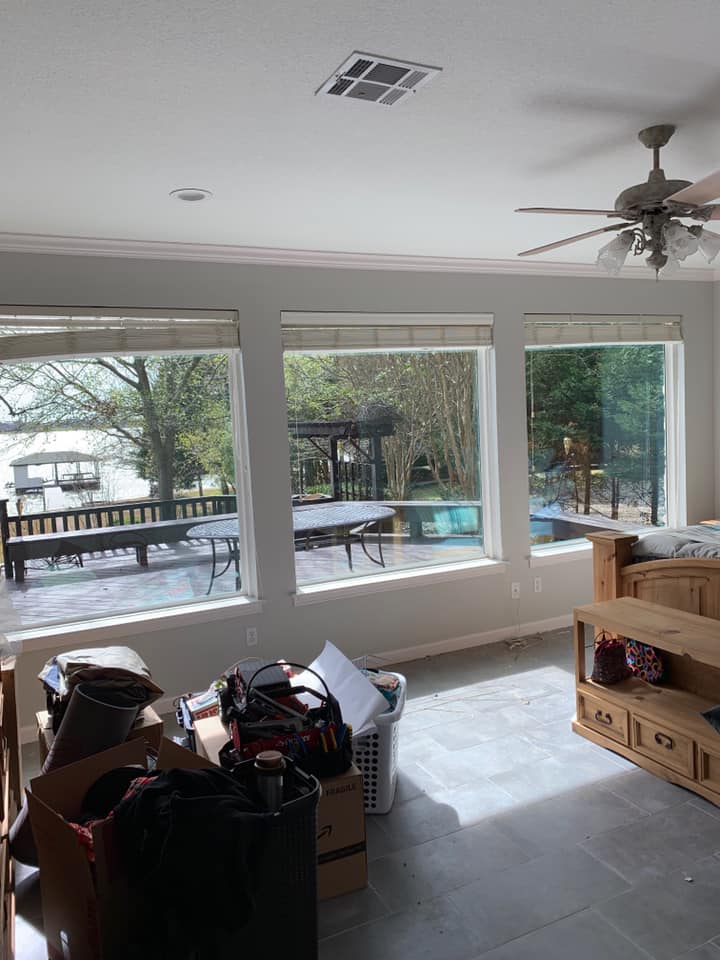Window Insulation plays a crucial role in a home or business’s comfort and energy efficiency. While they provide natural light and ventilation, they can also be a significant source of heat loss in the winter and heat gain in the summer. Poorly insulated windows force heating and cooling systems to work harder, leading to increased energy bills and inconsistent indoor temperatures.
Investing in proper window insulation can make a substantial difference in both comfort and energy savings. Whether through upgraded window glass, weatherproofing techniques, or window treatments, improving insulation reduces energy waste and creates a more stable indoor environment. Below, we explore how window insulation works and why it is essential for any property.
The Role of Windows in Energy Efficiency
Windows account for a significant portion of a building’s energy consumption. According to the U.S. Department of Energy, heat loss and heat gain through windows are responsible for 25%–30% of residential energy use. This means that inefficient windows can lead to higher utility bills and increased strain on heating and cooling systems.
Well-insulated windows help to:
- Prevent drafts and air leaks
- Reduce heat transfer between indoor and outdoor environments
- Improve temperature consistency in different rooms
- Lower heating and cooling costs year-round
- With the right insulation methods, windows can become an asset rather than a liability when it comes to energy efficiency.


1. Double-Pane and Triple-Pane Glass
One of the most effective ways to improve window insulation is by upgrading to double-pane or triple-pane windows. These windows feature multiple layers of glass with insulating gas, such as argon or krypton, sealed between them.
- Reduces heat loss in winter and heat gain in summer
- Improves soundproofing, creating a quieter indoor environment
- Prevents condensation buildup, reducing the risk of mold and moisture damage
- While the upfront cost of double-pane or triple-pane windows is higher than single-pane options, they pay for themselves over time through lower energy bills and increased indoor comfort.
How Window Insulation Works
Window insulation helps regulate indoor temperatures by minimizing thermal transfer—the process of heat moving through window glass and frames. There are several ways to improve window insulation, ranging from energy-efficient glass to simple weatherproofing solutions.
2. Low-E Glass Coatings
Low-emissivity (Low-E) glass is designed to reflect heat while still allowing natural light to pass through. This special coating minimizes the amount of infrared and ultraviolet (UV) light that enters or escapes through a window.
- Reduces heat loss in winter by reflecting interior warmth back inside
- Blocks UV rays, preventing furniture and flooring from fading
- Lowers cooling costs in summer by reflecting exterior heat away from the home
- Low-E glass coatings are often included in modern energy-efficient windows and are an excellent way to boost insulation without sacrificing visibility.

3. Weatherstripping and Caulking
For homeowners looking for a cost-effective way to improve window insulation, weatherstripping and caulking are simple but highly effective solutions. Over time, window seals can deteriorate, allowing air to leak in and out of the home.
- Eliminates drafts, making indoor temperatures more stable
- Reduces heating and cooling costs without major renovations
- Extends the lifespan of windows by preventing moisture infiltration
- Applying weatherstripping around movable window parts and caulking gaps around window frames helps seal air leaks and enhance insulation.
4. Thermal Curtains and Window Coverings

Window treatments, such as thermal curtains, cellular shades, and insulated blinds, provide an additional layer of protection against heat transfer. These coverings trap air between the fabric and the window, acting as a barrier to temperature changes.
- Enhances insulation without replacing windows
- Provides privacy while reducing heat gain or loss
- Can be easily adjusted to allow natural light in when needed
- While window treatments alone may not provide as much insulation as high-efficiency glass, they are an excellent supplemental solution for improving energy savings.
Financial Benefits of Insulated Windows
Investing in better window insulation directly reduces energy consumption, which translates to lower utility bills over time. The U.S. Department of Energy estimates that upgrading to energy-efficient windows can save homeowners between $126 and $465 per year in energy costs, depending on the climate and home size. Additionally, many state and federal programs offer tax credits or rebates for installing energy-efficient windows, making upgrades even more affordable. Beyond energy savings, insulated windows can increase property value as homebuyers look for features that improve efficiency and comfort.
Environmental Impact of Window Insulation
By reducing energy waste, insulated windows help lower a home’s carbon footprint. Since heating and cooling systems require less energy to maintain indoor temperatures, there is less reliance on fossil fuels, reducing greenhouse gas emissions.
- Lower energy consumption, reducing demand on power grids
- Less reliance on heating and cooling systems, decreasing wear and tear on HVAC units
- Reduced carbon emissions, contributing to a more sustainable home
- For homeowners and businesses looking to adopt eco-friendly practices, improving window insulation is one of the most effective and long-term solutions.
Why Window Insulation is a Smart Investment
Upgrading to insulated windows or improving existing insulation is one of the best ways to enhance indoor comfort while lowering energy costs. Whether through double-pane glass, Low-E coatings, weatherproofing, or thermal window treatments, each insulation method contributes to better temperature regulation and reduced energy waste.
If you are experiencing drafty windows, high energy bills, or inconsistent indoor temperatures, it may be time to consider window insulation improvements. Contact us today to learn how our expert window insulation solutions can enhance your home or business, providing year-round comfort and maximum energy savings.

